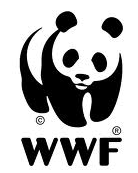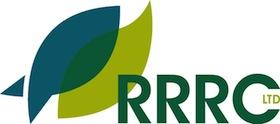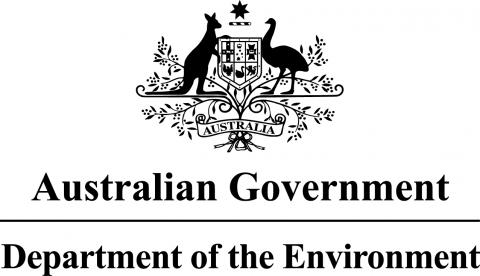Resources
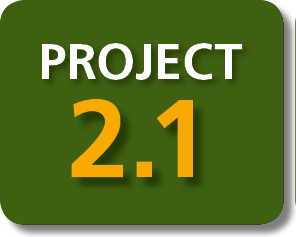
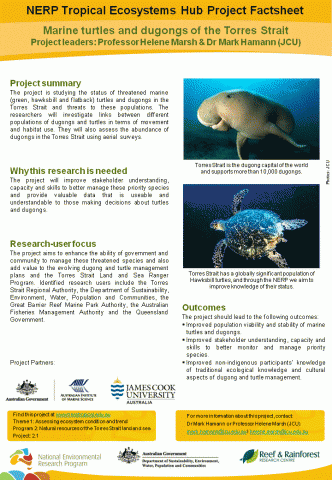 The project is studying the status of threatened marine (green, hawksbill and flatback) turtles and dugongs in the Torres Strait and threats to these populations. The researchers will investigate links between different populations of dugongs and turtles in terms of movement and habitat use. They will also assess the abundance of dugongs in the Torres Strait using aerial surveys.
The project is studying the status of threatened marine (green, hawksbill and flatback) turtles and dugongs in the Torres Strait and threats to these populations. The researchers will investigate links between different populations of dugongs and turtles in terms of movement and habitat use. They will also assess the abundance of dugongs in the Torres Strait using aerial surveys.

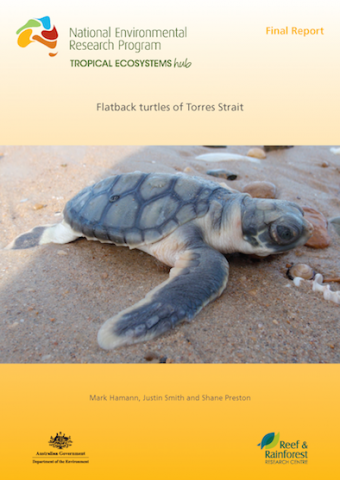 Hamann, M., Smith, J. and Preston S. (2015) Flatback turtles of Torres Strait.
Hamann, M., Smith, J. and Preston S. (2015) Flatback turtles of Torres Strait.
© JCU

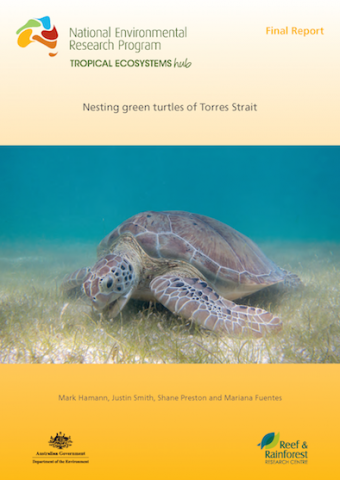 Hamann, M., Smith, J. Preston S. and Fuentes, M.M.P.B. (2015) Nesting green turtles of Torres Strait.
Hamann, M., Smith, J. Preston S. and Fuentes, M.M.P.B. (2015) Nesting green turtles of Torres Strait.
© JCU

Weiss, K., Hamann, M., Marsh, H. (2012) Bridging knowledge: understanding and applying indigenous and western scientific knowledge for marine wildlife management. Society and Natural Resources. 26, 285-302 [doi:10.1080/08941920.2012.690065].

Weiss, K., Hamman, M., Kinney, M., Marsh, H. (2012) Knowledge exchange and policy Influence in a marine resource governance network. Global Environment Change. 22, 178-188 [doi:10.1016/j.gloenvcha.2011.09.007].
* Funded by DEWHA (MTSRF)

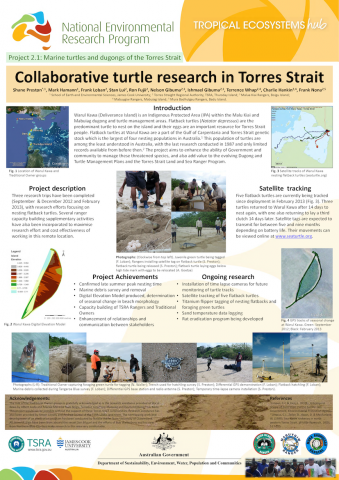 Collaborative turtle research in Torres Strait.
Collaborative turtle research in Torres Strait.

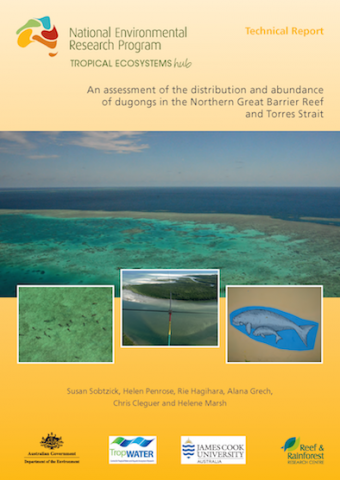 Sobtzick, S., Penrose, H., Hagihara, R., Grech, A. Cleguer, C., Marsh, H. (2014) An assessment of the distribution and abundance of dugongs in the Northern Great Barrier Reef and Torres Strait.
Sobtzick, S., Penrose, H., Hagihara, R., Grech, A. Cleguer, C., Marsh, H. (2014) An assessment of the distribution and abundance of dugongs in the Northern Great Barrier Reef and Torres Strait.© James Cook University

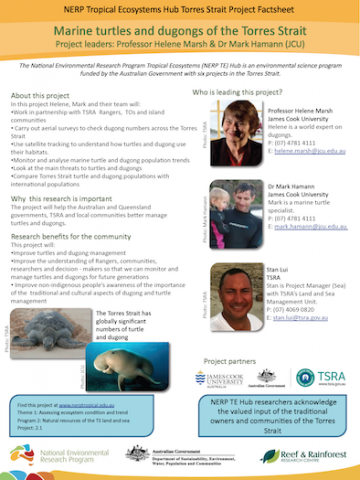 In this project Helene, Mark and their team will:
In this project Helene, Mark and their team will:
• Work in partnership with TSRA Rangers, TOs and island communities
• Carry out aerial surveys to check dugong numbers across the Torres Strait
• Use satellite tracking to understand how turtles and dugong use their habitats.
• Monitor and analyse marine turtle and dugong population trends
• Look at the main threats to turtles and dugongs
• Compare Torres Strait turtle and dugong populations with international populations.
Find out more about Project 2.1
WWF
18 July 2013
WWF-Australia today welcomed the commitment of the Australian Government to commit $930,000 towards the management of marine turtles under the Working on Country program.
"The Working on Country program has been a great success for both the environment and Indigenous communities," WWF spokesperson Darren Grover said. Read more
